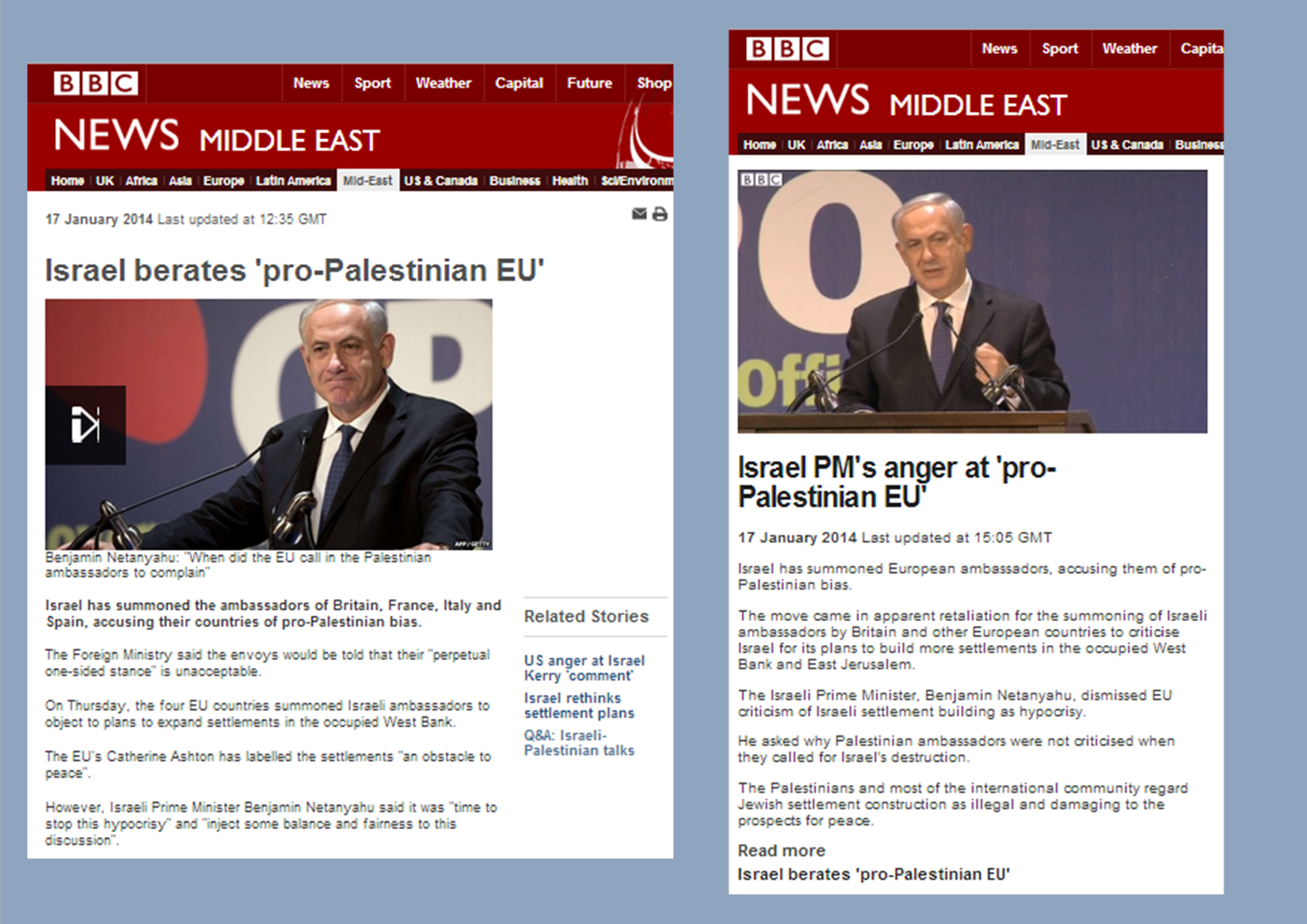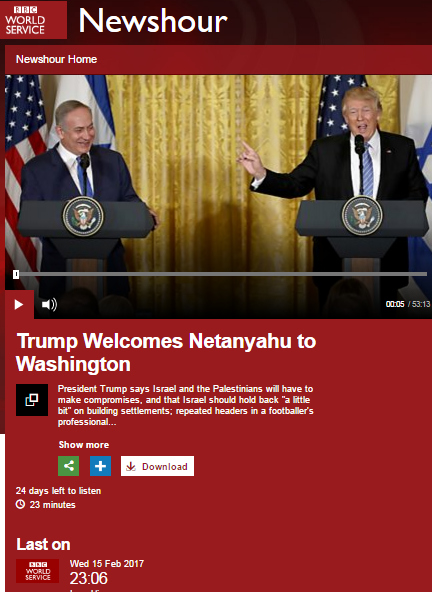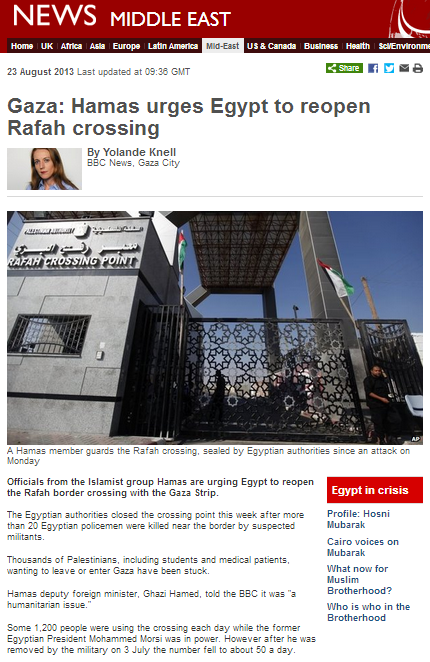On January 17th the BBC News website’s Middle East page featured an article titled “Israel berates ‘pro-Palestinian EU‘” which included a filmed report (shown too on BBC television news) that also featured separately in the same page’s ‘Watch/Listen’ section under the title “Israel PM’s anger at ‘pro-Palestinian EU’“.
Despite the wording of those two headlines, there is no evidence either in the written account or in that filmed report of PM Netanyahu speaking at the recent GPO annual reception of him ‘berating’ or expressing “anger” at the EU for being “pro-Palestinian”. Rather, Netanyahu’s remarks indicate dissatisfaction with the EU’s continual overlooking of incitement on the part of the Palestinian Authority. Those are of course two very different things: ignoring incitement and often racist demonisation is not ‘pro-Palestinian’ any more than pointing it out is ‘anti-Palestinian’. Hence the BBC’s two headlines misrepresent PM Netanyahu’s speech.
The written report states:
“”The EU calls our ambassadors in because of the construction of a few houses? When did the EU call in the Palestinian ambassadors about incitement that calls for Israel’s destruction?” he [Netanyahu] said at a meeting of foreign journalists on Thursday.
The Israeli government has accused the Palestinian Authority of taking no action to stop inflammatory language against Israel and Jewish people in its official media.”
Once again, no adequate attempt is made to explain to BBC audiences what the Israeli PM means by incitement and no examples are given in order to enable readers and viewers to form an informed opinion of Netanyahu’s statement.
The synopsis of the filmed report includes the following:
“The Palestinians and most of the international community regard Jewish settlement construction as illegal and damaging to the prospects for peace.”
That phrasing does not make it sufficiently clear to audiences that construction takes place within existing neighbourhoods and communities.
The written article states:
“The EU’s Catherine Ashton has labelled the settlements “an obstacle to peace”.”
And:
“Last week Israel announced plans to build 1,400 new homes in Jewish settlements in the West Bank and East Jerusalem, which Ms Ashton said constituted “an obstacle to peace and threaten[ed] to make the two-state solution impossible”.
About 500,000 Jews live in more than 100 settlements built since Israel’s 1967 occupation of the West Bank and East Jerusalem.
The settlements are considered illegal under international law, though Israel disputes this.”
There is, of course, no substance behind Catherine Ashton’s claims – as noted here – with all the latest tenders being in districts which, according to any reasonable scenario of a final status agreement, will remain under Israeli control. However, the BBC as usual fails to meet its obligations to guidelines on impartiality by neglecting to inform audiences of that fact. Once again, it also misleads audiences by claiming that all residents of what it chooses to term “settlements” – including neighbourhoods of Jerusalem – are Jewish and by failing to present any of the many opposing opinions on the subject of the legal status of those communities.
With these two BBC reports focusing on the Israeli PM’s observation that EU countries have repeatedly failed to condemn the effects of Palestinian Authority-sanctioned incitement on the peace process, this is a good opportunity to remind ourselves of the BBC’s own record on that and other subjects.
Since the resumption of talks between Israel and the PLO at the end of July 2013 alone, the BBC News website has published numerous articles dedicated to the portrayal of Israeli building as an “obstacle to peace” which threatens the viability of negotiations – see for example here, here, here, here and here.
In addition, that same theme – along with the standard incomplete portrayals of the question of the legal status of communities described by the BBC as “settlements” – has appeared in many other articles not specifically relating to the subject of building tenders – see for example here, here, here and here.
The number of BBC articles providing comprehensive information to audiences on the subject of incitement and glorification of terrorism by official PA bodies and their effects on peace negotiations, however, is zero – as is the number of BBC reports on the sharp rise in terror incidents since the latest round of talks began.
Similarly, the subject of the recent cancellation of an exhibition titled “People, Book, Land” (intended to be held at the UNESCO headquarters in Paris) at the demand of the Arab League – bizarrely on the grounds that an exhibition featuring “[t]he 3,500 Year Relationship of the Jewish People and the Land of Israel” might have “a potential impact on the peace process and current negotiations in the Middle East” – has to date not received any coverage on the BBC news website.
Related Articles:
BBC’s ‘Israeli building threatens peace talks’ meme in numbers
Proof of official Palestinian incitement and antisemitism the Guardian won’t report (CiF Watch)





